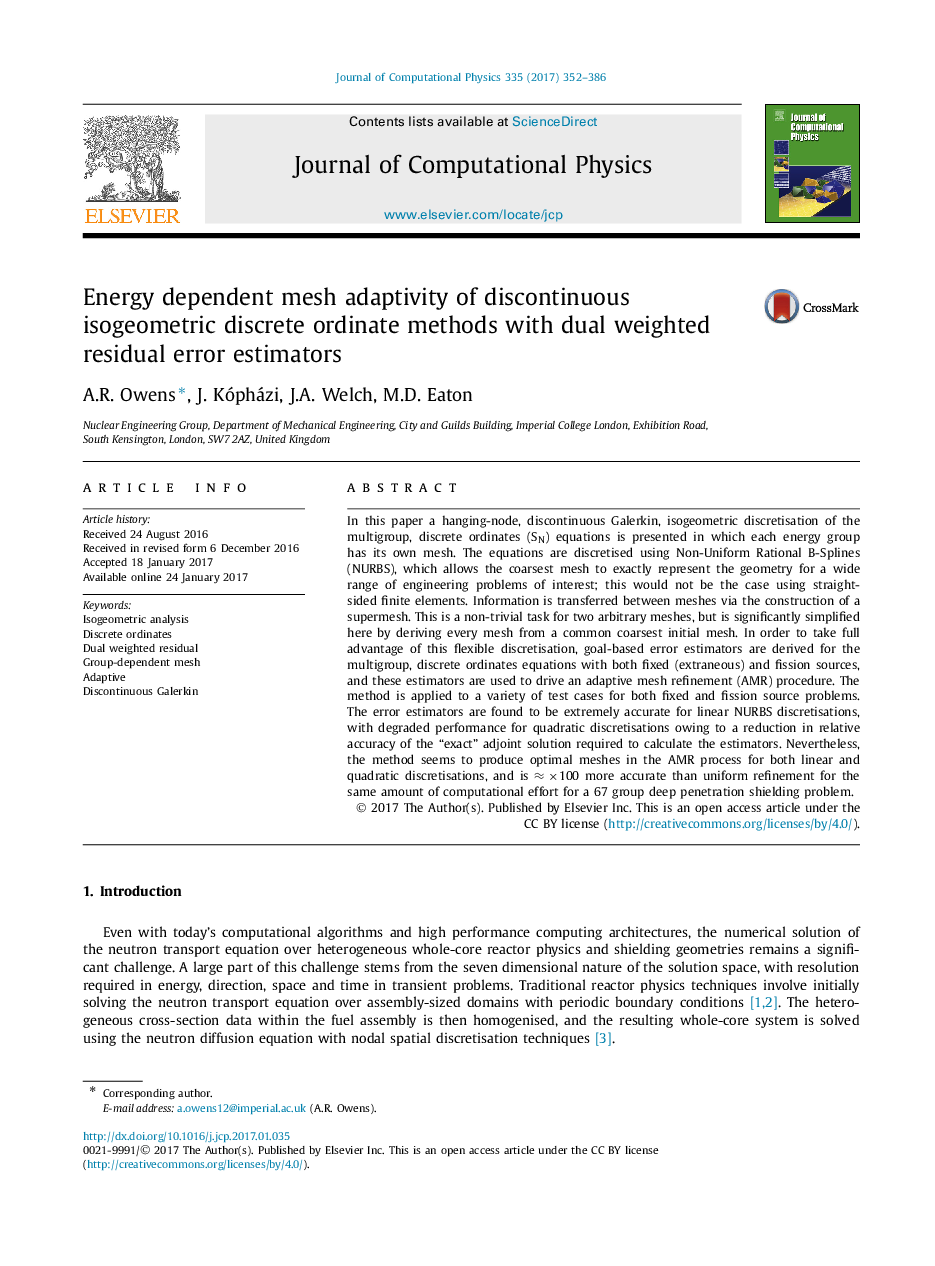| Article ID | Journal | Published Year | Pages | File Type |
|---|---|---|---|---|
| 4967531 | Journal of Computational Physics | 2017 | 35 Pages |
In this paper a hanging-node, discontinuous Galerkin, isogeometric discretisation of the multigroup, discrete ordinates (SN) equations is presented in which each energy group has its own mesh. The equations are discretised using Non-Uniform Rational B-Splines (NURBS), which allows the coarsest mesh to exactly represent the geometry for a wide range of engineering problems of interest; this would not be the case using straight-sided finite elements. Information is transferred between meshes via the construction of a supermesh. This is a non-trivial task for two arbitrary meshes, but is significantly simplified here by deriving every mesh from a common coarsest initial mesh. In order to take full advantage of this flexible discretisation, goal-based error estimators are derived for the multigroup, discrete ordinates equations with both fixed (extraneous) and fission sources, and these estimators are used to drive an adaptive mesh refinement (AMR) procedure. The method is applied to a variety of test cases for both fixed and fission source problems. The error estimators are found to be extremely accurate for linear NURBS discretisations, with degraded performance for quadratic discretisations owing to a reduction in relative accuracy of the “exact” adjoint solution required to calculate the estimators. Nevertheless, the method seems to produce optimal meshes in the AMR process for both linear and quadratic discretisations, and is âÃ100 more accurate than uniform refinement for the same amount of computational effort for a 67 group deep penetration shielding problem.
